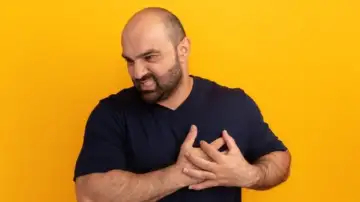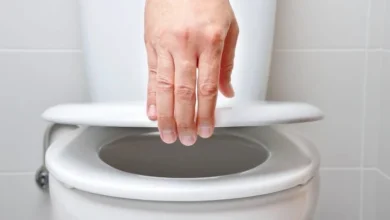Cardiologist sounds alarm on rising sudden cardiac deaths among India’s youth: ‘Occurs within minutes.’

Heart-related diseases are at an all-time high. Young adults, particularly, are more at risk. As per the World Heart Federation, up to 80 per cent of premature cardiovascular (CVD) deaths are preventable.
This demonstrates the importance of awareness regarding the various cardiovascular issues affecting the youth today.
One of the alarming concerns lately is sudden cardiac death (SCD). Dr Bipeenchandra Bhamre, consultant cardiac surgeon at Sir H. N. Reliance Foundation Hospital and Research Centre in Mumbai, told HT Lifestyle that it is a major concern and that the youth are most impacted by it.
“Cases of sudden cardiac death are rising in India, causing a burden on the healthcare system. Many youngsters are also losing their lives due to this cardiac crisis in the country. Currently, many youngsters succumb to sudden cardiac arrest while working out at the gym, while walking on the road, or while playing sports,” Dr Bhamre explained.
What is sudden cardiac death?
According to Dr Bhamre, sudden cardiac death is very quick, as he noted, “Sudden cardiac death means the unexpected loss of heart function that can occur within minutes.” This further strengthens the importance of taking proactive steps to maintain cardiovascular health. “Without emergency intervention, survival chances are very low,” the cardiologist further alerted, indicating how this makes immediate recognition of symptoms extremely crucial.
He added that it should not be confused with a heart attack, although heart attacks can increase the risk of SCD. The cardiologist further reiterated that survival chances are very low if proper emergency intervention is not available.
Sudden cardiac death (SCD) is a serious medical emergency where the heart suddenly stops beating, leading to loss of blood supply to vital organs. It often happens without warning and can be fatal if immediate treatment is not given. Many people who experience SCD may have no prior symptoms, making awareness and quick action crucial.
Another point Dr Bhamre highlighted is the non-negotiable importance of regular cardiac screening. Since the risks of SCD are higher due to pre-existing heart conditions, such as blocked arteries, rupture of existing blockages, or weakened heart muscles, these can lead to massive heart attacks, ventricular arrhythmias, or abnormal heart rhythms like ventricular tachycardia or fibrillation.
Here are the causes and symptoms of SCD the cardiologist listed:
Causes

- Coronary artery disease (blocked arteries)
- Previous heart attack, heart failure or weakened heart muscles
- Genetic heart rhythm disorders (e.g., Long QT syndrome)
- Severe thickening of the heart muscle (hypertrophic cardiomyopathy)
- Electrocution or severe chest injury.
Symptoms

- Chest pain or discomfort
- Shortness of breath
- Dizziness or fainting
- Palpitations or fast heartbeat
- Sudden collapse without warning









